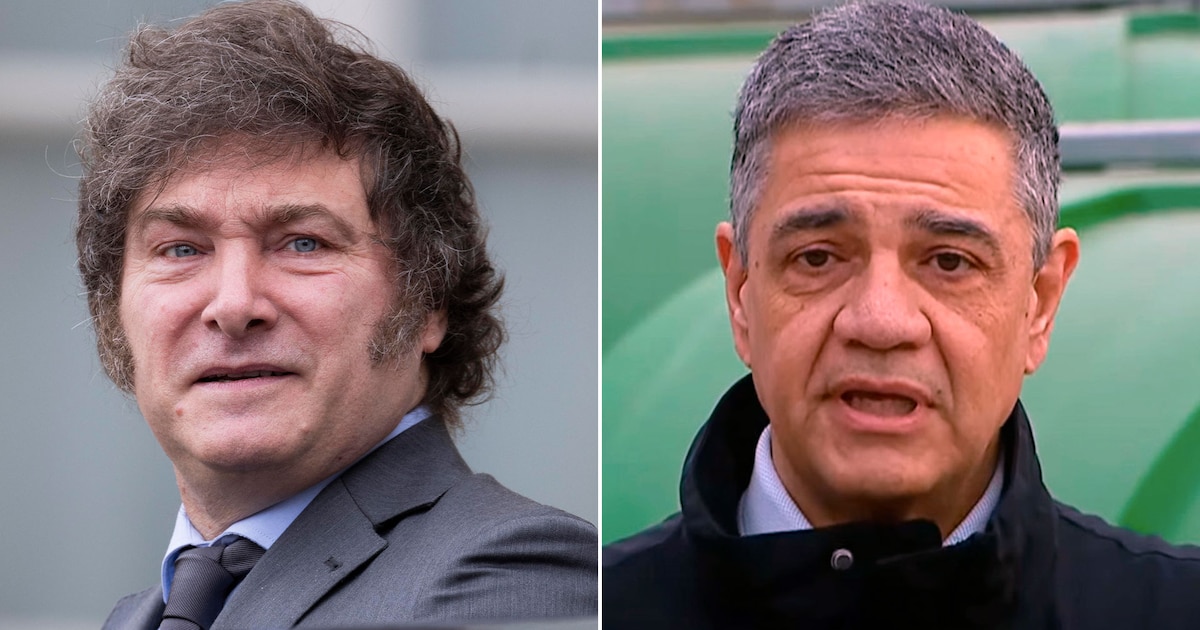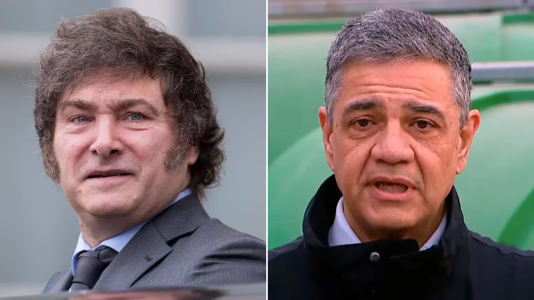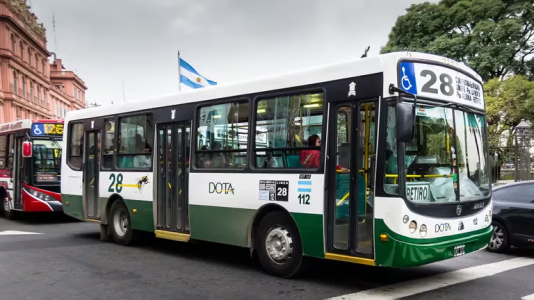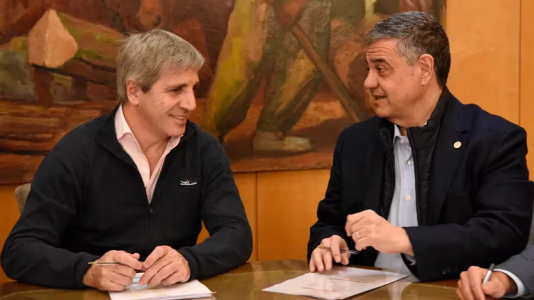All the Answers
Well-known member
Tension over transport: the Government will transfer the management of buses to CABA by decree and will remove subsidies from 31 lines - Infobae

Source:

Tensión por el transporte: el Gobierno traspasará por decreto el manejo de los colectivos a CABA y quitará subsidios a 31 líneas
Los Ejecutivos de la Nación y la Ciudad negocian si ese paso se dará completamente en septiembre o si habrá un período de transición para el traspaso del transporte, en medio de la disputa por la coparticipación. El posible impacto al bolsillo de los usuarios
The executives of the Nation and the City are negotiating whether this step will be taken completely in September or if there will be a transition period for the transfer of transportation, in the midst of the dispute over co-participation. The possible impact on users' pockets
By Augustin Maza

The dispute between CABA and the Nation over transport subsidies intensifies
The government of Javier Milei has a decree ready that could be announced in the next few hours and with which it will transfer to Jorge Macri the management of the 31 bus lines that circulate within the Autonomous City of Buenos Aires (CABA) starting in September, according to sources from the National Executive anticipated to Infobae , in the midst of last-minute negotiations between the parties.
https://www.infobae.com/politica/20...illa-de-derrotas-del-gobierno-en-el-congreso/
The decision, which comes in parallel with the dispute over co-participation , implies not only the power to define routes, fares and frequencies, but also a withdrawal of the subsidies that these companies receive to keep fares from increasing and the withdrawal of financing from the integrated ticket of the SUBE Network (for those who make more than one trip within a two-hour range) in that jurisdiction. There are $8.5 billion per month at stake.
This media has learned that negotiations are currently ongoing between the Nation and CABA on whether the transfer of powers will take effect in September or if there will be a “transition period” to moderate the impact on the system. The conversations are being held almost directly between the Minister of Economy, Luis Caputo , and Mayor Macri. The companies hope that a common point will be reached but warn that, if not, the continuity of the service is in danger.
https://www.infobae.com/economia/20...-empresas-siderurgicas-ante-la-amenaza-china/
The regulation has been drafted. Among the details that Infobae had access to, it contemplates changes to Decree 656 of 1994 , which established that transportation under national jurisdiction was placed under the jurisdiction of the Nation, and is also based on the transfer that was defined in 2012, when the City took control of the subway. It also contemplates the transfer of the attributes to define routes, frequencies and fares. The negotiations could end in a more orderly period so that the Milei government's idea can become effective.

Javier Milei's Government wants to maintain only subsidies in the lines of national jurisdiction
The City says it does not have the funds to compensate the companies for the withdrawal of the Nation and that it is not possible to take over the system overnight. “For us, it will take at least six months to be able to implement everything, because it must also go through the Legislature,” said the Minister of Infrastructure of the City of Buenos Aires, Pablo Bereciartua, in a radio interview on Wednesday.
https://www.infobae.com/politica/20...rarse-personalmente-en-la-interna-libertaria/
Industry sources believe that at the end of the day, Milei and Macri's administrations will reach an agreement. In the City they explain that the "real" cost of the ticket on the 31 lines mentioned is $863, of which $371 is paid by the user, while the Nation subsidizes $271 and the other $221 is paid by CABA. If there is no agreement, the ticket on these buses should go up to $642 , and if there is no increase, the companies warn that the continuity of the service is at risk due to the $7 billion a month that they will no longer receive.
The other problem is that the other 103 national lines in the Buenos Aires Metropolitan Area (AMBA) , which has a base in CABA and another in the province of Buenos Aires , will continue to be subsidized by the Nation, which is why in the same city there may be 31 lines with higher rates. This is a point that the companies are also warning about.

Minister Luis Caputo and the head of the Buenos Aires government, Jorge Macri
Another conflict is the integrated ticket for the SUBE Network, for which CABA should assume another $1.5 billion and the province of Buenos Aires $6.5 billion monthly. The benefit is applied automatically at the time of travel only for registered cards: the first is paid at the full rate, the second with a 50% discount and the third with a 75% discount. Within a two-hour period, up to five transport combinations can be made, but there must be a minimum time interval of 2 minutes and the transport of another person cannot be paid for.
Luis Caputo's premise is to "equalize the situation that exists in all the other provinces of the country with Ciudad y Provincia" as he explained this Wednesday in radio statements. The national government eliminated subsidies to the lines in the interior in February.
In the background is the dispute between both parties over co-participation. Caputo began to transfer $20 billion pesos per week to CABA to comply with part of the Court's ruling that forced the Nation to return the funds taken in 2020 by Alberto Fernández . However, Macri claims $5 billion pesos in debts that would have accumulated due to transfers in the last 48 months.

